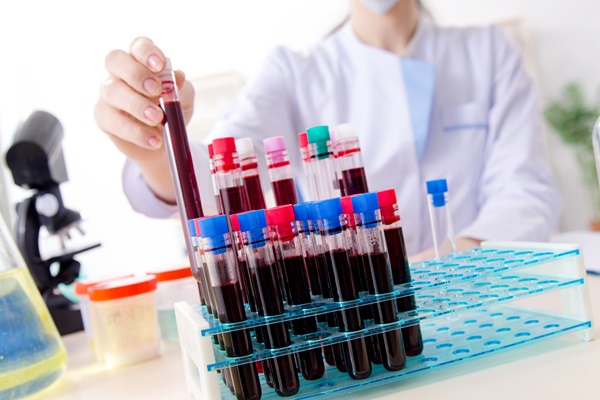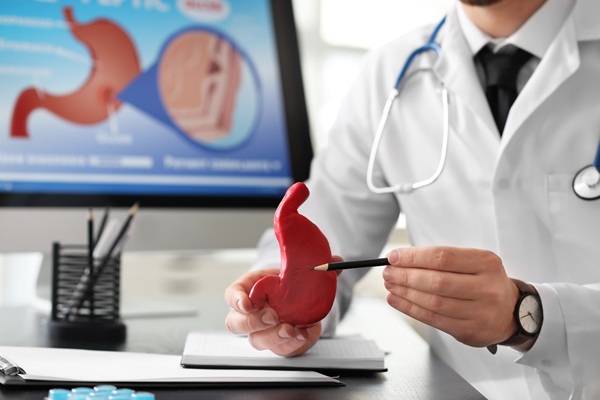Hematologist Near Me: What Are Common Blood Disorders?

If you are doing an internet search for a "hematologist near me," you likely suspect you have a blood disorder or have been diagnosed with one. Either way, you may experience anxity and questions that you are unsure where to start searching for answers. Educating yourself on blood disorders and what a hematologist does is the first step toward answering those questions and easing that anxiety.
What is a hematologist?
A hematologist is a medical doctor specializing in diagnosing and treating blood disorders. Hematologists usually focus on specific conditions or areas of their specialty. These specialists may work in hospitals, clinics, or even research labs. Each hematologist completes at least nine years of medical education, including three years of on-the-job training and possibly up to four years in a hematology subspecialty.
What are blood disorders?
Blood disorders affect the blood's ability to function correctly in the body. They can be serious and impact your overall health. There are dozens of different blood disorders, and their causes are numerous, including genetic conditions, cancers, medications, lifestyle factors, and nutrient deficiencies.
Types of blood disorders
Blood disorders can affect any component of the blood:
- Red blood cell disorders. Affects blood's ability to carry oxygen to the body
- White blood cell disorders. Affects the blood cells that fight infection
- Platelet disorders. Interfering with the blood's ability to clot properly
In addition to these three, a blood disorder can also affect plasma, the liquid portion of the blood.
Most common blood disorders
There are numerous types of blood disorders. However, here are some of the more common:
Anemia
Anemia is the most widespread of all blood disorders. According to the National Heart, Lung, and Blood Institute, more than 3 million Americans have some form of anemia. Red blood cells carry hemoglobin that carries oxygen from the lungs to the rest of the body. Anemia occurs when there is insufficient hemoglobin or red blood cells, or the red blood cells do not function properly. In addition to genetic factors, one can develop anemia for many reasons, with Iron deficiency being the most common cause.
Blood clotting disorders
These disorders make a person's blood clot too easily or abnormally. Blood clotting disorders can put people at risk for heart attack or stroke, especially if untreated. Blood clots can also increase a person's risk of losing a limb. Blood clotting disorders can either be genetic or acquired due to surgery, medication, trauma, or a medical condition.
Hemophilia
Hemophilia is a platelet cell disorder where the blood does not clot, leading to excessive bleeding. It happens when the blood lacks the normal amount of clotting factors, the proteins that work with the platelets to form clots that stop and slow bleeding. Though usually an inherited disorder, people can develop acquired hemophilia in rare cases, which happens when autoantibodies attack clotting factors.
Blood cancers
Three major types of blood cancer, leukemia, lymphoma, and myeloma, affect white blood cells in different ways. Leukemia occurs when mutations cause bone marrow to produce an excessive amount of abnormal white blood cells that do not function properly. On the other hand, lymphoma impacts the lymph system, starting in the infection-fighting cells known as lymphocytes. Myeloma is a cancer of the plasma cells in the bone marrow, where abnormal plasma cells build up in the bone marrow and crowd out healthy cells. Though the causes of these cancers are not entirely understood, they are believed to develop from a combination of genetic and environmental factors.
Common symptoms of blood disorders
Symptoms of blood disorders can vary by type and patient, but here are some common symptoms to watch for:
- Frequent infections
- Extreme fatigue
- Unexplained weight loss
- Wounds that do not heal
- Dizziness or lightheadedness
- Muscle weakness
- Unexplained bleeding or bruising
- Shortness of breath
- Pale skin color
Many people with severe blood disorders report an overall feeling of unwellness that they do not have an explanation for.
Finding a hematologist near me
Patients experiencing the following symptoms should seek a medical evaluation, especially if they have a family history of blood disorders. People can talk to their primary care doctor for a referral to a hematologist or search the internet. People can type "hematologist near me" into the search bar to find hematologists in their area and find a significant amount of information on local providers. Be sure to check the websites of these local providers for their experience and qualifications. Patients should also read reviews, which can also be found online.
Blood disorders can affect anyone
Those without a family history of any blood disorders may still be affected. Blood disorders are treatable, so do not wait to seek medical help. To learn more about blood disorders or how to find a hematologist near me, call our team today.
Request an appointment here: https://lindenbergcancer.com or call Lindenberg Cancer & Hematology Center at (856) 475-0876 for an appointment in our Marlton office.
Check out what others are saying about our services on Yelp: Hematologist Near Me in Marlton, NJ.
Recent Posts
Gynecological cancer treatments target cancers that affect the female reproductive organs, such as ovarian, uterine, cervical, vaginal, and vulvar cancers. Fortunately, there have been significant medical advances in cancer treatment that have greatly improved patient outcomes, allowing oncologists to adjust therapies to fit each patient's needs and overall health. These targeted treatments work better than…
Gastrointestinal cancer treatment is a broad and evolving field focusing on cancers affecting the digestive tract, including the esophagus, stomach, pancreas, liver, small intestine, colon, and rectum. Each area may involve different approaches based on the cancer's stage, location, and specific genetic factors. Oncologists often coordinate with surgeons, radiologists, and other specialists to create a…
Finding a hematologist near me is an important step when facing symptoms that may indicate a blood disorder or a more serious underlying condition. While not every unusual symptom warrants a referral, recognizing certain signs early can lead to more effective treatment and improved outcomes. Knowing when a hematologist’s expertise is necessary can help patients…
Colon cancer treatment often involves a combination of therapies to destroy cancer cells while protecting overall health. Each person’s treatment plan differs and depends on several factors. Though colon cancer treatment can seem complicated and overwhelming, understanding what to expect can help patients feel more at ease and make informed decisions about their health.Before treatment…


